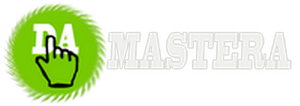
Select which program you want to study:
We help you get an education abroad and find a job. Depending on the program you choose
we sign a contract with you. Before signing the contract, you will have an interview with us where you will
be informed about all the details of further training and preparation for exams.
For those who study for themselves, there is no need to go through an interview, after payment you get access
to the training materials .
Ukrainians get a 50% discount. Free in special cases, to do this, you just need to submit your application correctly. .

Lernen+
Preparation for the academy
Enroll in a German academy under a study contract and then get a job
Preparation for the academy
Enroll in a German academy under a study contract and then get a job

Working
Preparing for an employment contract
After language courses, go abroad to earn money without prior training
Preparing for an employment contract
After language courses, go abroad to earn money without prior training

For myself
Just for myself
Studying for yourself, without any goals of further study or earnings
Just for myself
Studying for yourself, without any goals of further study or earnings
Description of German language levels
A1
The German A1 course is a language course for beginners that teaches the basics of the German language and is based on the Common European Framework of Reference for Languages (CEFR). It is designed for people without previous training and enables them to understand and pronounce simple sentences, introduce themselves and answer simple questions..
Basic Grammar: You will learn simple grammar structures such as personal pronouns, articles and simple sentences. Vocabulary: You will learn important everyday vocabulary such as greetings, numbers, colors, and names of everyday objects. Pronunciation: You will practice the correct pronunciation of German words and sentences. Communication: You will learn to understand and answer simple questions and introduce yourself using simple sentences. Requirements for the German language course level A1: As a rule, no previous knowledge is required, as this is a course for beginners. It will be useful if you already know how to read and write the Latin alphabet. German Course A1 (online course): Flexible schedule, with qualified teachers, often with interactive digital versions of textbooks. German Course A1 is an important first step to learning German and communicating in everyday life.
A2
The A2 German course builds on the foundations of the A1 level and enables learners to communicate in simple, everyday situations. According to DAMASTERA, learners should be able to understand simple sentences and phrases, talk about their background, and share information about their education. An intensive course for beginners at the A1 or A2 level lasts between 2 and 3 months.
The A2 German course typically includes: Basic everyday communication: talking about hobbies, family, work, shopping, etc. Understanding simple texts: short texts, emails, messages, etc. Writing simple texts: short notes, messages, etc. Grammar and vocabulary: reviewing and expanding on the basics covered in the A1 course. Getting to know yourself and the world around you: background, education, etc.
B1
The B1 German course develops advanced German language skills, enabling students to communicate in everyday situations and understand simple texts. The course also prepares students for the B1 exam, an important goal for many international students. The B1 German course aims to broaden the language skills needed to use the language independently in everyday life. In particular, this means that students should be able to: communicate in everyday situations: hold conversations, exchange information and ask simple questions. Understand simple texts: read newspaper articles, letters, news and other written material. Write simple texts: write emails, short notes and simple reports. Deepen grammar skills: master and apply the basic grammatical structures of the German language. Expand vocabulary: use an expanded vocabulary to express thoughts more precisely. The B1 course is often divided into two parts: B1.1 and B1.2, each consisting of 48 teaching hours. There are different options for completing the B1 course, including intensive courses, online courses and weekend courses. The choice of course format depends on individual needs and learning preferences.
B2
The B2 German course is designed for advanced learners who already have a good command of the German language and want to further develop their language skills. The course prepares them for independent use of the language in everyday life and in the professional sphere. What does B2 German mean? B2 German is a language level according to the Common European Framework of Reference for Languages (CEFR). It means that you can understand the main ideas of complex texts on both concrete and abstract topics. You can communicate freely and spontaneously and express yourself in detail on a wide range of topics. Contents of the B2 German course: Vocabulary expansion: The emphasis is on learning new words and phrases, especially for technical discussions and the professional sphere. Consolidation of grammar: A review of familiar grammatical structures and an examination of more complex topics. Developing speaking skills: Both written and spoken language should become more precise and fluent. Comprehension of complex texts: Ability to understand longer and more complex texts, technical articles and newspaper articles. Debating skills: Ability to participate in discussions, express opinions and weigh different points of view.
Target group:
Private individuals (e.g. pupils, students, professionals, migrants) Companies (companies looking for German courses for employees) Exam preparation (Goethe Certificate, TestDaF, Telc).
Spezialisierung:
German for Nurses Business German Exam Preparation Conversation Courses.











